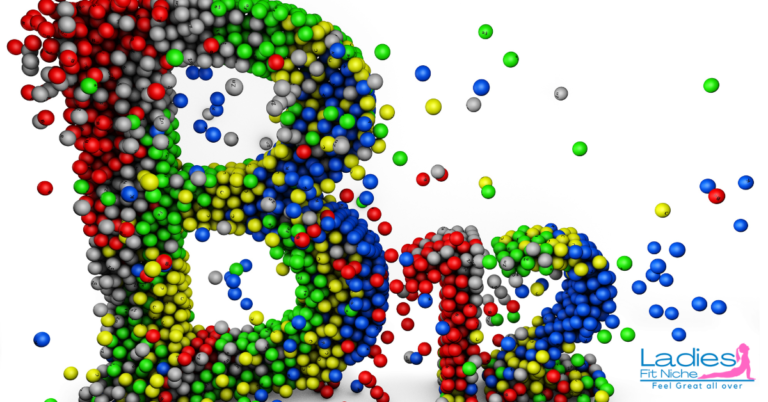Can low estrogen cause blood sugar issues
As you explore various aspects of menopause, a critical question that arises is, “Can low estrogen cause blood sugar issues ?” Well, you’ve come to the right place! Menopause can actually have quite an impact on your blood sugar, and it’s important to understand the reasons behind it.
In this article, you’ll discover how hormonal shifts during and after menopause can contribute to blood sugar issues. We’ll delve into the role of estrogen and progesterone in insulin sensitivity and blood sugar regulation. You’ll also learn about the connection between weight gain, particularly around the abdominal area, and the risk of high blood sugar and type 2 diabetes during and after menopause. And that’s just the beginning!
We’ll also delve into sleep issues during menopause and how they can affect blood sugar handling. Plus, we’ll provide you with practical tips on managing your blood sugar through diet, exercise, hydration, stress control, and supplementation. Trust us, by the end of this article, you’ll have a better understanding of how to navigate blood sugar levels during and after menopause for your overall health and wellness.
Effects of Menopause on Blood Sugar Levels
Menopause is a natural phase of life that every woman goes through as she reaches middle age. While many are aware of the various physical and emotional changes that occur during this time, fewer people are aware of the potential effects of menopause on blood sugar levels. This article aims to shed light on this important topic and provide you with information on how to manage your blood sugar effectively during and after menopause.
Hormonal shifts during and after menopause
One of the primary reasons for changes in blood sugar levels during menopause is the hormonal shifts that occur in a woman’s body. As women age, their bodies produce less estrogen and progesterone, the key female hormones responsible for regulating various bodily functions. These hormonal shifts can impact insulin sensitivity and how the body processes glucose, leading to fluctuations in blood sugar levels.
Increased risk of high blood sugar and type 2 diabetes
Research has shown that the risk of developing high blood sugar and type 2 diabetes increases during and after menopause. The decrease in estrogen levels is believed to contribute to insulin resistance, where the body’s cells become less responsive to the hormone insulin. This, in turn, leads to higher blood sugar levels and an increased risk of developing diabetes.
Sleep issues and their effect on blood sugar handling
Another factor that can impact blood sugar management during menopause is sleep issues. Many women experience sleep disturbances, such as insomnia or night sweats, which can affect the body’s ability to regulate blood sugar levels. Lack of quality sleep can disrupt hormone levels and increase insulin resistance, further complicating blood sugar control.
Managing blood sugar during and after menopause
Fortunately, there are several steps you can take to manage your blood sugar effectively during and after menopause. A combination of lifestyle changes and medical interventions can help keep your blood sugar levels stable and reduce the risk of developing diabetes.
First and foremost, adopting a healthy diet is crucial. Focus on consuming low-glycemic foods, such as whole grains, fruits, vegetables, lean proteins, and healthy fats. Avoid processed foods, sugary snacks, and drinks that can cause blood sugar spikes. Regular exercise is also important. Aim for a mix of cardiovascular exercises and strength training to improve insulin sensitivity and maintain a healthy weight.
Staying well-hydrated is often overlooked but plays a significant role in blood sugar regulation. Drinking enough water helps flush out toxins and aids in the proper functioning of the body’s cells. Managing stress levels is equally important, as high stress can lead to elevated blood sugar levels. Engage in stress-reducing activities such as meditation, yoga, or hobbies that bring joy and relaxation into your life.
Supplementation can also be beneficial in balancing blood sugar levels. Consult with your healthcare provider about supplement options that may support healthy blood sugar management during and after menopause.
Effects of hormonal imbalances on blood sugar metabolism
Hormonal imbalances during and after menopause can further impact blood sugar metabolism. In addition to decreased estrogen and progesterone levels, there may also be an increase in stress hormones, such as cortisol, which can interfere with blood sugar regulation. These hormonal fluctuations can make managing blood sugar levels more challenging and require additional attention and care.
Controlling blood sugar for overall health and wellness
Controlling your blood sugar levels during and after menopause is essential for overall health and wellness. Elevated blood sugar levels can increase the risk of heart disease, stroke, and other chronic conditions. By taking proactive measures to manage your blood sugar, you can reduce the likelihood of developing these complications and maintain a healthier life.
The role of estrogen in insulin sensitivity and blood sugar regulation
Estrogen, one of the primary female hormones, plays a crucial role in insulin sensitivity and blood sugar regulation. It helps promote the efficient use of glucose by the body’s cells and supports insulin production and utilization. As estrogen levels decline during menopause, insulin sensitivity decreases, leading to higher blood sugar levels.
Learn more about What Happens to Estrogen Levels during Menopause
The role of progesterone in insulin sensitivity and blood sugar regulation
Progesterone, another key female hormone, also influences insulin sensitivity and blood sugar regulation. It helps improve insulin sensitivity and promotes the storage of glucose in the body’s cells for energy. As progesterone levels decline during menopause, insulin sensitivity may decrease, contributing to higher blood sugar levels.
The impact of weight gain during and after menopause
Weight gain during and after menopause is common due to hormonal changes and a decrease in metabolism. Unfortunately, this weight gain, particularly around the abdominal area, can increase the risk of high blood sugar and type 2 diabetes. Excess abdominal fat is associated with insulin resistance, making it more challenging for the body to regulate blood sugar levels effectively.
Diet, exercise, hydration, stress control, and supplementation for blood sugar management during and after menopause
To effectively manage blood sugar levels during and after menopause, a holistic approach is necessary. A balanced diet rich in low-glycemic foods, regular exercise, proper hydration, stress control, and potential supplementation can all contribute to blood sugar management. These lifestyle changes can help improve insulin sensitivity, maintain a healthy weight, and reduce the risk of developing diabetes.
Learn more about Diabetes and Menopause
summary
In conclusion, menopause can have significant effects on blood sugar levels. Hormonal shifts, sleep issues, weight gain, and hormonal imbalances can all contribute to blood sugar issues during and after menopause. However, by taking proactive steps such as following a healthy diet, engaging in regular exercise, managing stress levels, and considering supplementation, you can effectively manage your blood sugar levels and maintain overall health and wellness during this important stage of life.







